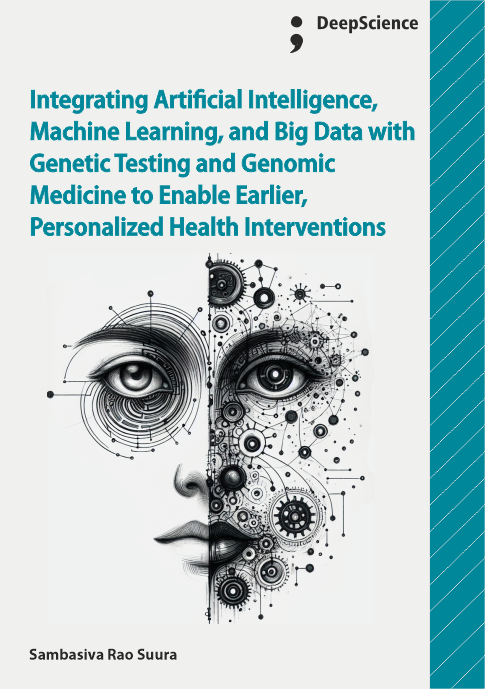The future of genomic medicine: A vision for equitable, data-driven, and artificial intelligence-augmented personalized healthcare
Synopsis
Over the past two decades the cost of sequencing a human genome has dropped 99.99999995%, down from the $3 billion project completed in 2003, from costly $300 million projects in 2007 to just several hundred dollars in recent years. In 2013, a leading sequencing company introduced a new machine that costs just $1,000 to generate a whole human genome. With advancements in sequencing technology and analytics tools, as well as the rapidly increasing size of genomic data being generated, it has been predicted that genomic information will cover every citizen on this planet. The growing expectation is that, with the widespread utilization of genomics, more data-driven and precise healthcare will be achieved, diagnosing diseases earlier, suggesting better treatments, and preventing diseases before they occur.
A vision is posited for imagining the future of continued advancements in genomics from an analytical perspective. This vision is for a future where genomics becomes a key driver of healthcare and introduces a more equitable, data-driven, and AI-augmented healthcare system. Projects and works in realizing this future are presented, from academic research analysing large-scale sequencing data, including deeply understanding the genetic basis of common and rare diseases and the development of more accurate health risk prediction models, to interdisciplinary collaboration with businesses on utilizing genomics to evolve and evaluate new diagnostics and treatments. There will be a new section on the established genomics research facility, engaging and collaborating with the large healthcare and health technology sector in applying genomics to improve and evaluate current health services. At the end of the essay, the discussion will be shifted towards presenting and reflecting on the resulting works, including both significant improvements and important challenges in current practices, and issues needing extra attention.
As new opportunities emerge with genomic technologies, a critical consideration for healthcare is their distribution and accessibility. There is an ongoing debate in the US about whether genomic medicine will follow a similar course as family planning advancement, leading to disparities in successful intervention rates among diverse populations. In the context of genomics, diversity often refers not only to the wide range of genetic makeups but also to social, economic, and other factors that are intertwined with genetic backgrounds. In the landscape of health genomics, from testing and interpretation of genetic data to the development and application of treatments informed by genomics, there is a growing concern that the benefits of genomic medicine are expanding more dramatically to some subpopulations while leaving many others behind, resulting in prolonged disparities in diagnosis and treatment for a wide range of diseases.













